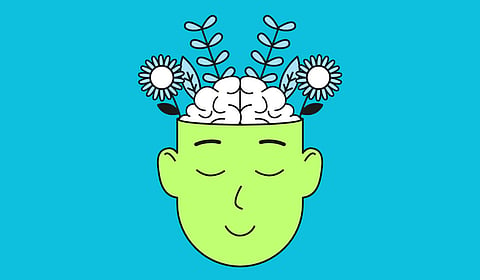

The journey toward understanding, acceptance, and ultimately breaking the stigma surrounding mental health is a collective responsibility that can reshape societies and empower individuals.
The Stigma Surrounding Mental Health: Unraveling Misconceptions
For far too long, misconceptions and stereotypes have clouded discussions about mental health, contributing to the stigma that many individuals face. This stigma can deter people from seeking help, leading to a cycle of silence and suffering. It's essential to challenge preconceived notions and foster an environment where open conversations about mental health are not only accepted but encouraged.
Raising Awareness: Education as a Catalyst for Change
Education is a powerful tool in dismantling the walls of stigma. By promoting awareness about various mental health conditions, their prevalence, and the available support, we can create a more informed and empathetic society. Schools, workplaces, and communities can play pivotal roles in educating individuals, eroding the ignorance that often fuels stigma.
The Role of Media in Shaping Perceptions
Media platforms hold immense influence in shaping public opinion. Responsible representation of mental health in movies, television, and social media can play a crucial role in challenging stereotypes. By portraying diverse and authentic stories, media can contribute to a more nuanced understanding of mental health issues, fostering empathy and reducing judgment.
Promoting Well-being: The Importance of Self-care and Support Systems
Emphasizing mental well-being is not solely about addressing disorders; it's about cultivating a culture of self-care and building robust support systems. Encouraging individuals to prioritize their mental health through activities like mindfulness, exercise, and seeking professional help when needed can contribute to overall well-being.
Community Initiatives and Advocacy
Local communities have the power to create positive change. Grassroots initiatives and advocacy campaigns can break down barriers and encourage open dialogue. Support groups, workshops, and events can provide safe spaces for individuals to share their experiences and connect with others facing similar challenges.
The Workplace and Mental Health: Creating a Supportive Environment
As many spend a significant portion of their lives in the workplace, fostering a mentally healthy work environment is crucial. Employers can implement policies that prioritize employee well-being, offer mental health resources, and establish a non-judgmental atmosphere that encourages open communication.
Conclusion: A Collective Effort for a Stigma-free Future
In order to eradicate the stigma associated with mental health, individuals, groups, and organizations must work together. By fostering understanding, promoting education, and creating supportive environments, we can pave the way for a future where mental health is recognized, respected, and prioritized. It's time to embrace the conversation, challenge stereotypes, and work together towards a world where everyone can thrive mentally and emotionally.
